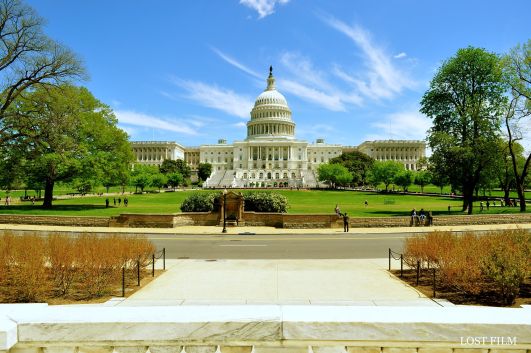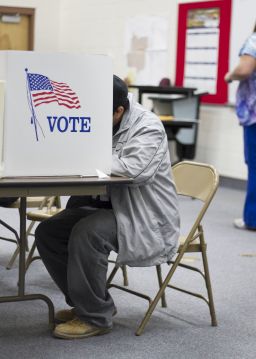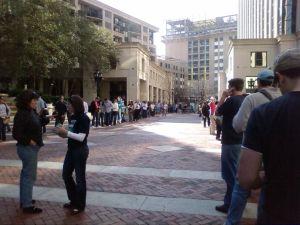The citizens’ right to vote in elections is a fundamental part of any democracy. However, in the United States, millions of its citizens are unable to perform this seemingly basic part of civic duty. The non-uniformity of voting laws across the nation makes it so that each state has its own set of voting laws. Some states mandate voter identification, and in others, former convicts are unable to vote.
However, a bill, the H.R.1 voting rights bill, passed the house of representatives on March 3rd with a 220 to 212 vote. This vote was mostly along party lines, with Democrats being in favor of the bill and most Republicans voting against it. H.R.1 aims to implement laws that will attempt to make voting laws across every state more uniform, giving many Americans the ability to vote. These laws will be reducing strict voter ID laws and allowing former convicted criminals to be able to vote. The bill also addresses financing for campaigns and voter fraud and election security.

This is not the first battle for true equality when it comes to voting. In the dawn of the US, only a small portion of citizens could vote. Dr. James Hedtke, professor of history and political science, said, “From 1789 to 1830, only white male property owners could vote. By the 1830s, the property disqualification began to disappear and all white men could vote.” The passings of the 15th amendment (which allowed black men to vote) and of the 19th amendment (which allowed women to vote) were major steps forwards for equality in voting. However, the dense fog of Jim Crow prevented many African Americans from being able to vote in the South. During this reign of terror, racist policies such as requiring literary tests or only allowing white people to vote were commonplace in the south. Eventually, The Civil Rights act of 1964 destroyed legalized race-based segregation, which allowed millions of people to cast their ballot and make their voices heard.

There have been other voting rights bills in the 21st century that have come before H.R.1. Hedtke said that some of these bills have made voting less restrictive, but others have suppressed voter turnout. He also said that “Laws that encourage voter turnout have generally aided the Democrats, while laws that suppress voter turnout have generally aided the Republicans.”
H.R.1 is also not the first bill to try and aim for homogenous voting laws. Elizabeth Zachai, a local Democratic party leader, said, “That there have been attempts for voting standards across all states.” However, these have been largely unsuccessful.
This voting rights bill could be a major step forward to racial equality in voting. While racial discrimination is illegal, some people of color still struggle with being able to vote. Zachai said in states with strict voter ID laws, “Many people in poor or rural communities of color are unable to even get proper voter IDs.”
Dr. Michael Moreland, professor of law and religion at Villanova University, added that these people living in rural areas might have to drive for many miles just to find a place to get proper ID. Zachai also mentioned that people who live in poorer areas are more likely to be in the prison system than those in well-off areas, and many states will not allow former convicts to vote.
Election fraud is another topic that is tackled in this bill. Marian Schneider, former deputy secretary for elections and administrations for the Pennsylvania state department, said that election fraud is very uncommon and foreign interference in elections is very minimal. “What’s most disturbing about when voter fraud comes up is that it always takes on a partisan tinge, when everyone should be trying to make it as accessible as possible.” She said, “There was no widespread cyberattacks in the 2016 election… there was an enormous effort taken to reduce the amount of cyberattacks and foreign interference in the election, and they were successful.”

While the bill has yet to pass the Senate, it is evident that there is much to change in the way US voting is currently handled. Moreland said that “The bill will make sure that some of these barriers will be taken down, and the most important thing for a democracy is to let the people vote.”


